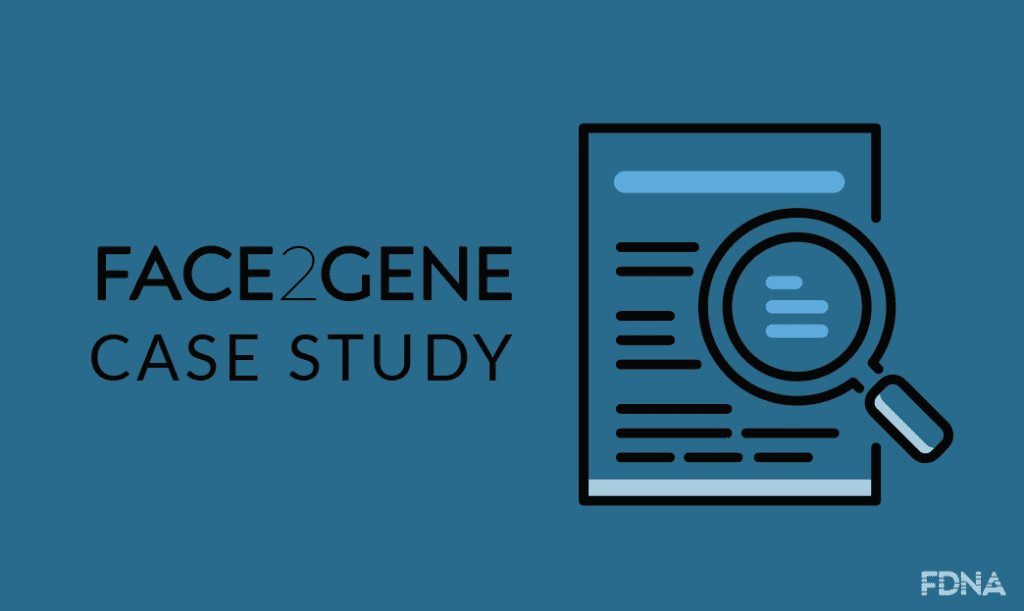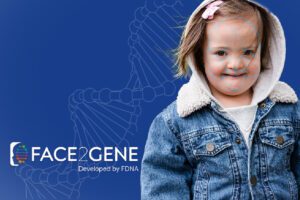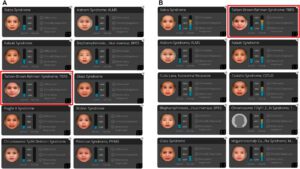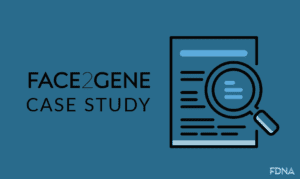In this case, Face2Gene helped Dr. Lynne Bird focus analysis on a single variant in a setting where the patient had limited financial support for genetic testing.
WHO
Dr. Lynne Bird is a dysmorphologist and clinical geneticist at Rady Children’s and a long-time user of Face2Gene. She regularly uses the app to help in her clinical evaluation of patients with dysmorphic facial features where the correct diagnosis is not obvious. She also uses the Face2Gene analysis to help guide her test selection and support her clinical correlation of reported results.
THE DILEMMA
Like many geneticists, Dr. Bird sometimes has very few options when it comes to ordering genetic testing for her patients, as many insurance companies will only cover certain types of tests or only tests from certain laboratories. For example, in a recent case, the patient’s insurance limited the laboratory she could use and what tests she could order. The patient presented with intellectual disability, behavior problems, and some dysmorphic facial features. Based on the patient’s insurance, Dr. Bird knew she would only get coverage for testing at one particular lab. When she tried to get authorization to order an exome sequence, it was not approved. She instead ordered an intellectual disability gene panel, which included several genes and reflexed to a clinical exome, including about 5,000 genes.
It was no surprise to Dr. Bird that the results came back showing two variants of uncertain significance (VUS). Both were in genes that can be associated with intellectual disability, but based on the available information about these variants, there was no good way to determine which one was most likely to be a causative variant for Dr. Bird’s patient. Fortunately, the lab offered free analysis of parental samples. Unfortunately, this offer was only available for one of the two variants.
THE SOLUTION
To help make the decision about which VUS to pursue, Dr. Bird analyzed the case in Face2Gene, and the results showed KBG syndrome as the top hit and a very strong match for the patient. One of the two VUS results was in ANKRD11, the gene that causes KBG syndrome. Dr. Bird discussed this with the family, explaining that “there are two reported variants here, but we can only get free parental testing on one. Based on the strength of the fit for KBG syndrome in Face2Gene, that’s the one I suggest we prioritize.”
THE RESULT
The results of parental testing showed that the ANKRD11 variant was a de novo variant in the patient. Finding that a VUS is de novo often motivates a change in the variant classification, elevating it to “likely pathogenic”. In this case, the lab felt that they could not rule out nonpaternity, so they did not alter the variant classification. For Lynne, it made a huge difference and made her feel a lot more confident in deciding on this as the diagnosis. “Finding that it was de novo in this patient, in combination with Face2Gene pushing me in that direction, made me feel that I had solved this case.“
“I don’t have a great ‘feel’ for KBG syndrome. I think I have seen now a total of two cases with this diagnosis. I suspect this syndrome is a lot more common than we think, but in most cases its not very distinctive. Yet the computer obviously sees something way more clearly than the human brain (at least mine) can.”



